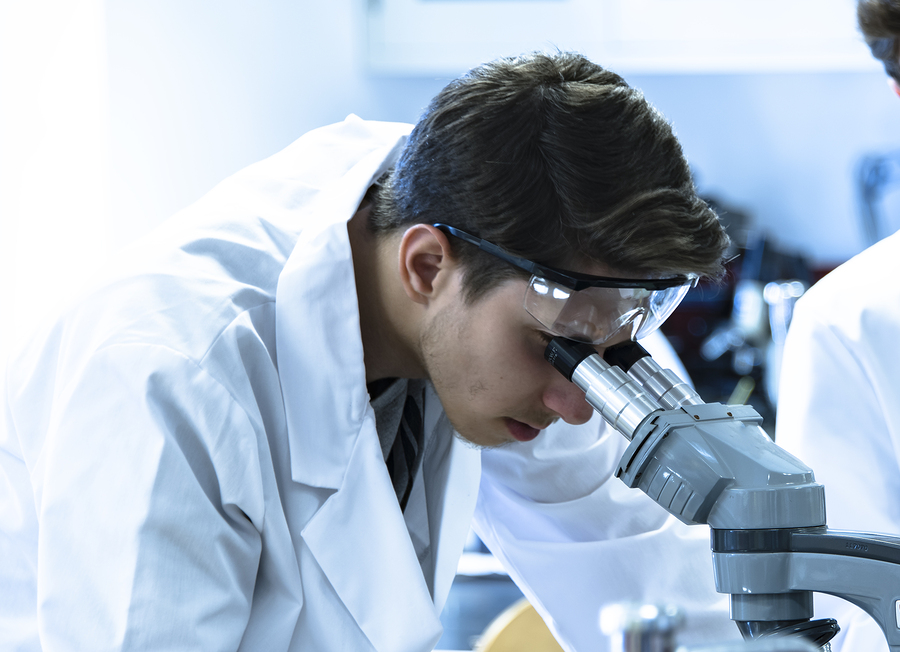The objective of medical research is to improve the diagnoses, treatment, prevention and cure of patients. It comprises basic research—which does not have an economic finality at the outset—and clinical research and its technological applications (e.g. vaccines, drugs, devices, prosthetics). Governments, private foundations, companies and volunteer organizations participate actively in medical research, which is done within a research centre or institute, a university, or a company and involves frequent contacts with other investigators.
BASIC RESEARCH
The purpose of basic research is to better understand the human body. Its field of application includes physiology, biology, anatomy, histology and biochemistry.
→ Basic research associate
This person is in charge of the scientific work for a given research topic. He or she plays an important role in defining the experiments to carry out and the procedures to be used.
Duties
- Seek out information on the chosen topic.
- Study and analyze documentation.
- Select experimental themes and methods.
- Create and adjust equipment to research work.
- Analyze, evaluate and disseminate experimental results.
- File patents.
- Report on the work conducted and resulting discoveries (e.g. publications, conferences).
CLINICAL OR APPLIED RESEARCH
Basic research is the foundation of clinical research, whose purpose is to develop new treatments, techniques and to prove their efficacy.
→ Clinical research associate (CRA)
Duties
- Set up clinical trials for a project.
- Ensure the smooth conduct of operations and project quality.
- Draft regulatory documents to obtain regulatory, administrative and ethics arrangements.
→ Clinical study manager
Duties
- Develop the product development strategy.
- Set up clinical development projects.
- Develop study protocols.
- Implement, coordinate and control the follow-up of trials.
RESEARCH AND DEVELOPMENT JOBS
→ Quality assurance associate
Implements a quality assurance system, builds awareness regarding quality and trains employees.
→ Drug monitoring associate
Assesses and manages drug risks to develop the safest possible projects. Monitors products during clinical trials and tracks adverse effects of marketed products.
→ Registration associate
Puts together registration files in accordance with the regulations in effect. Defines the regulatory framework of development programs.
→ Scientific documentation manager
Provides investigators with medical, technical and scientific information. Is also in charge of information processing.
→ Scientific and medical communications manager
Communicates medical and technical information on products under development and current products to internal and external players (doctors, pharmacists, etc.).
EDUCATION AND JOB REQUIREMENTS
The title of investigator does not require a particular status. All doctors, biologists, pharmacists, or veterinarians who have made a name for themselves (studies, degrees, accreditation or certification by well-regarded organizations, authored publications, peer recognition) can do research.
INVESTIGATOR’S TECHNICAL SKILLS
- Follows rigorous methodologies and processes
- Incorporates information from a variety of sources
- Analyzes content and synthesizes the information gathered
- Maintains the confidentiality of the information analyzed
INVESTIGATOR’S PROFILE
- Liking for innovation
- Curious
- Thorough
- Excellent oral and written communication skills
SALARY
Compensation between provinces varies—investigators in the Western provinces and Ontario make more than those in the Atlantic provinces, with Quebec lying inbetween.
CAREER PATH
Experienced investigators can become the study managers; they will then be in charge of the smooth conduct of a project and team. They can also combine the two activities—investigator and university professor.
